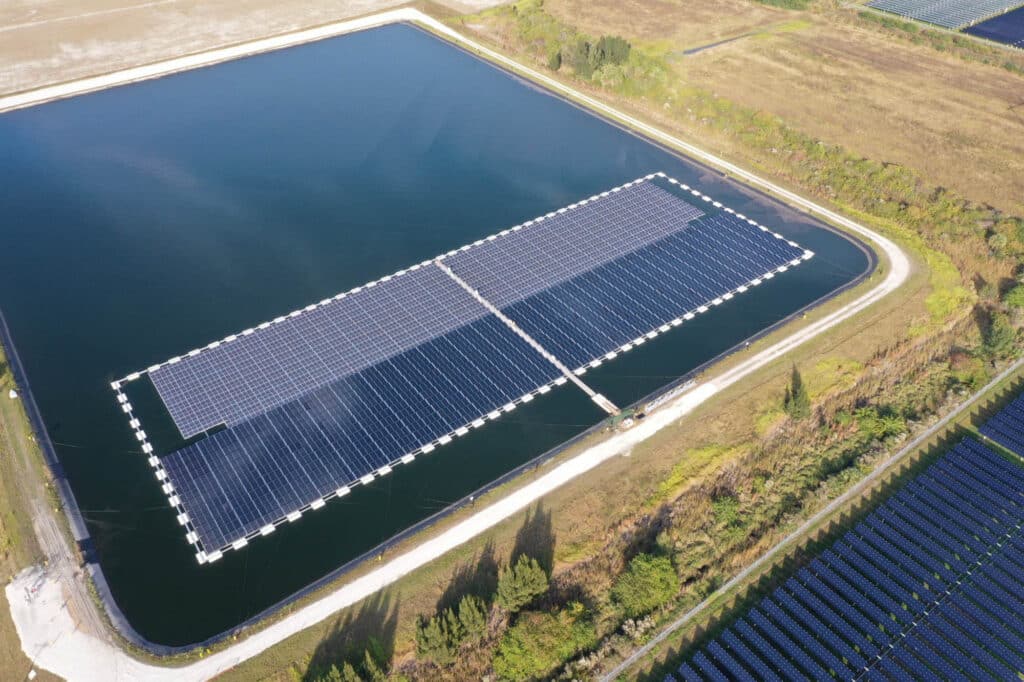When solar panels meet water, a unique set of maintenance hurdles emerges. The constant presence of humidity, airborne particles, and tenacious organic growth like algae and bird droppings can significantly compromise even the most robust solar installations. This blog will equip you with the knowledge to combat these challenges, covering the most effective cleaning methodologies, the essential equipment for the task, and crucial indicators that signal it’s time for action, ensuring your aquatic solar system maintains peak performance.
Cleaning Methods
- Manual Cleaning: Crews use soft brushes and water to gently remove debris. This can be labor-intensive, especially for larger projects.
- Automated Cleaning Systems: These motorized units glide over the panels and use soft bristles or air jets to dislodge debris. Though more expensive, they’re ideal for large-scale systems that require frequent cleaning with minimal labor.
Solar Panel Cleaning Equipment
Choosing the right solar panel cleaning equipment depends on panel layout, site accessibility, and environmental factors. Long-handled brushes, hose-fed pole systems, and non-abrasive scrubbing tools are commonly used for manual cleaning.
AI-Powered Solar Panel Cleaning for Maximum Energy Output and ROI
One example for automated cleaning is Solaris Hydrobotics who offers a patented, AI-powered robot that uses water to clean commercial, floating, and agrivoltaic solar panels. This autonomous, rail-free, and rooftop-compatible robot can remove up to 99.5% of dirt, which can increase your energy output by up to 25% in high soiling environments, which can drastically impact ROI.
The robot connects to a software platform that helps reduce labor, and system downtime. Solaris provides smart leasing and a quick ROI, so you can see rapid returns through savings and improved performance. Using robots also creates a safer environment for your workers by eliminating dangerous tasks and boosting morale.
Here are a few signs it’s time to clean:
- A visible drop in energy output
- Noticeable film or dirt on panel surfaces
- A scheduled seasonal inspection
To safeguard your investment and maximize energy output, regular cleaning of your floating solar panels is essential. Always consult your specific Operation & Maintenance (O&M) guidelines for detailed site-specific cleaning schedules and critical safety protocols. With the correct cleaning methods and appropriate equipment, your floating solar system can continue to provide reliable, clean energy for years. Contact us for more information!





